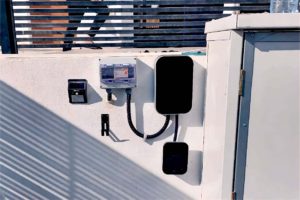Portable EV chargers are an incredible invention, making it easier than ever to charge your electric vehicle on the go. With so many features and specifications, it’s important to know what to look for when selecting the perfect portable EV charger – read on for all the details you need!
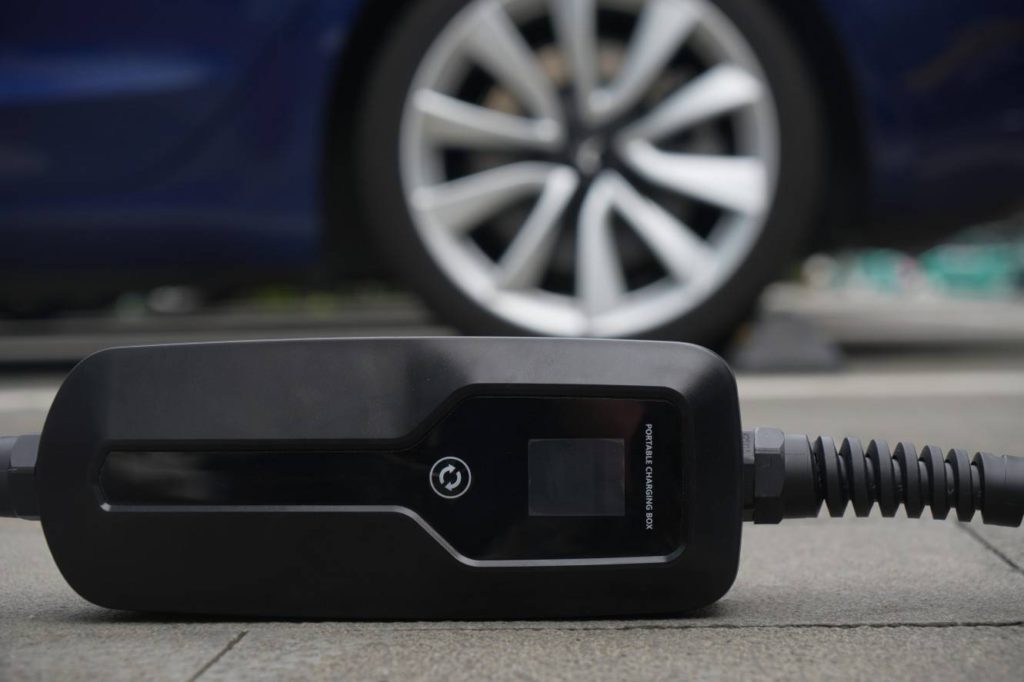
Understand Your Vehicle’s Needs
Before you invest in a portable EV charger, it’s important to understand the needs and limitations of your electric vehicle. Different vehicles require specific amounts of power and voltage, so make sure you check the specs before making a final purchase. Additionally, make sure you know your vehicle’s maximum current to ensure that it can handle the power safely!
Not sure how to figure out the maximum current requirement of your vehicle? Most electrical cars feature a label that displays all the technical specs you need. The label is usually located in either the glove compartment or in an area under the hood, making it easy for you to make sure you’re picking out the right charger for your electric car. If you can’t find it, be sure to check with your manufacturer before plugging a charger into your vehicle’s outlet!
Portable EV chargers are great for those times when you need to get a bit of extra range on the go. But it’s really important to make sure you understand your vehicle’s capacity requirements, as running a charger with too high of an output can cause irreparable damage to your battery and electric system. Plus, going with a charger that has more power than your car needs will just result in unnecessarily high electricity bills!
Before you buy a portable EV charger, make sure to look at your vehicle’s specifications. Most EVs have an onboard charging capacity between 6kW-22kW, so choose a charger that’s in the same range. Additionally, consider whether you need single-phase or three-phase power for your setup, as this will determine the type of charger you should buy. Finally, keep in mind how long you’ll be on the road and when you’ll need to recharge – longer trips will require more range from your chargers. With a bit of research and careful consideration of your vehicle’s needs, you can ensure that the portable EV charger you get is the right fit.
Once you know the maximum current your vehicle requires, you can begin researching portable EV chargers. Many of these chargers come in different power ratings, from 3kW to 22kW (or higher), so it’s important to choose one that meets your vehicle’s needs. Be sure to check whether the mobile charger has single-phase or three-phase capabilities; if you plan on charging at public charging stations, you’ll need a model that supports both. It’s also a good idea to consider how long your trip will be and when you’ll need to recharge – longer trips will require more range from your charger. With the right specs in mind, you can find a high-quality portable EV charger that will meet your vehicle’s needs and last through many road trips!
Ensure Your EV Charger is Suitable for Your Car
Investing in the wrong charger can do more harm than good. To make sure you get the best from your portable EV charger, always check that it is compatible with your electric vehicle. Make sure to research the amperage of your vehicle, and purchase a compatible charger with an output current suitable for your EV that has all of the necessary safety features.
Remember, a portable EV charger should only be used with the electrical system of your car in mind – many vehicle models require chargers of different amperage and features to ensure a safe and complete charging cycle. Additionally, look for chargers that have clear step-by-step instructions on how to operate them and safetly connect it to your vehicle. Also, keep safety as a priority when choosing an EV charger. Always check for certification from a governing body such as ETL or UL and ensure the charger is certified for indoor use.
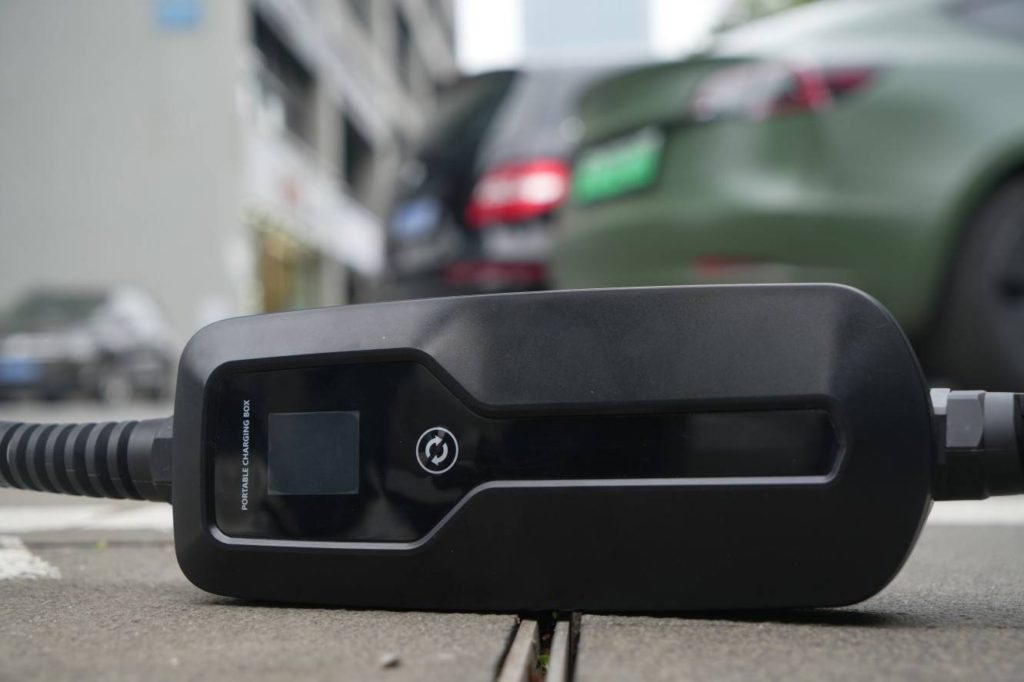
Before buying any EV charger, make sure to check compatibility with your car’s make and model. Also, double-check all safety information that comes with the charger, such as maximum voltage and current ratings, before plugging it in. Additionally, portable chargers typically require external electricity sources to charge your vehicle instead of being powered by the mains, so make sure you are buying one that is correctly designed for your geographical region or plug type so you can use it wherever you go. Following these simple steps will ensure that you purchase a portable EV charger that is suitable for your car – giving you a convenient and safe way to stay charged on the go.
Portable EV chargers are an incredibly convenient and accessible way to charge your electric car. This allows you to stay charged on the go – whether you’re visiting a friend or exploring a new area. However, buying the correct charger for your car is essential in order to use it safely. Make sure that you are selecting the correct plug type, maximum current, and voltage for your particular model of car before purchase. Also read any safety information specific to your charger and make sure all necessary precautions are taken when using it. With the correct research and preparation, a portable EV charger can be a very useful accessory for long journeys in an electric vehicle.
When selecting an EV charger for your car, keep in mind that the type of plug you choose must match the socket in your car. Usually, this will either be Type 1 which is compatible with most electric vehicles in Europe and Asia, or Type 2 which suits many models in Europe and the US. In terms of voltage and current, portable chargers vary hugely so make sure to look up your exact specification before purchase. Lastly, it’s important to familiarise yourself with any information about setting up and using the charger safely – ensuring that all necessary precautions are taken. If you follow all these steps you can be sure to gain maximum benefit from a portable EV charger on your next road trip!
Install the Appropriate Adapter and Extension Cable
To make sure you get the best from your portable EV charger, you need to be familiar with the type and size of adapter, as well as the appropriate extension cable for installation. Depending on the type of EV charger you have, you may need to install an adapter that has a plug socket compatible with your wall outlet or switchboard. Additionally, it is important to note that EV chargers typically require an extension cable so they can be relocated closer to the vehicle while charging.
It is important to research the specification and requirements for your specific charger before attempting to install it. This should include information on the type of plug you need, power levels and voltage ratings. Most EV chargers require 120-240 volts and 16 amps of power, while some premium models may require 240-480 volts and up to 80 amps of power. Once the appropriate adapter and extension cable have been identified and sourced, they can be safely installed. Following installation, it is important to periodically check that all connection points are secure, as well as ensuring the charger is not overloaded when connected to a vehicle’s battery.
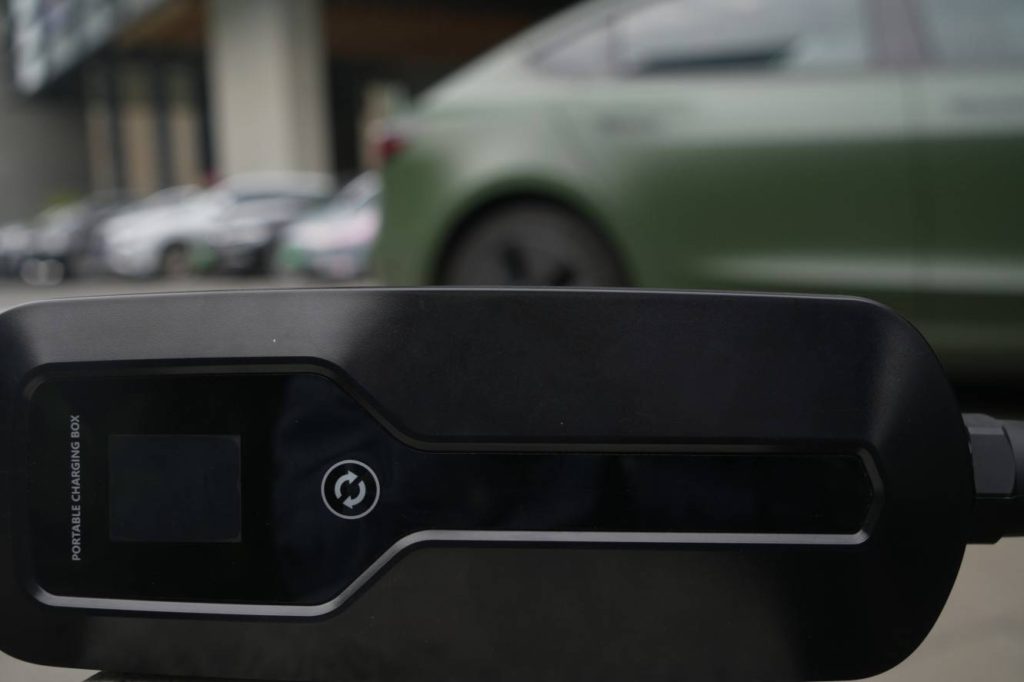
An extension cable may be needed if the charger needs to be set up away from a power source or another wall box. It is important to ensure that the appropriate cables are used and that they are long enough to while still being easy to handle and store away after use. The extension cable should remain untwisted and protected from sunlight, water and physical damage wherever possible. All EV chargers should have an approved external housing with appropriate IP ratings for moisture and dust protection, as well as any additional constructions required by local laws.
An important part of setting up a portable EV charger is to install the appropriate adapter and extension cable for the car or other device. Unless you are using a direct plug-in charger, an additional connector may be required for the cable. The electrical ratings on all devices must also be checked to make sure that they are suitable for use with the charger. It’s also important to ensure that there are no exposed wires, as these could cause a shock hazard. Additionally, when installing a charging station in a public area, ensure that it conforms to all applicable safety standards and any relevant local regulations.
Make sure to consult a certified electrician if you are in any doubt regarding the technical aspects of setting up the charger. Additionally, be mindful of where the cable is placed when plugging it into the car’s 12v socket or other connector – remember that it is not recommended to put strain on cords over extended periods of time. Having a quality extension cable also helps make movement around your vehicle more convenient. Take care with charging cables and ensure they do not become entangled around wheel arches, exhaust pipes or brake cables which could result in damage or injury.
Monitor Energy Consumption
One of the best ways to get the most out of your electric vehicle charger is to monitor your energy consumption while charging. Knowing exactly how much power you’re using will help you ensure that you are getting the most cost-effective charge! Additionally, monitoring your energy consumption can help you maximize the longevity of your battery and protect your electric vehicle from overcharging or undercharging.
Many electric vehicle chargers come with a built-in monitoring system that allows you to keep track of your charging progress, set limits for particular charge rates, and even receive alerts when something is going wrong. This makes it easy to stay on top of your energy consumption and make sure it’s staying within your safety margins. For those without an in-built monitoring system, there are many affordable options on the market that allow you to check on your charge remotely via an app on your mobile device. Additionally, these devices often come with additional features such as notifications when certain energy thresholds have been passed and data logging so you can track charging trends over time.
With the help of a portable charging monitor, electric vehicle owners can establish an easy and safe way to charge their vehicle’s battery no matter where they are. Aside from constantly being able to check up on your battery’s status, these devices come packed with many other useful features such as timers, safety protections, and even remote control settings so you can start/stop charging remotely. So if you want to be sure that your vehicle is getting the safest and most efficient charge possible while you’re on the go, a portable charger monitor is a great investment.
Not only can these monitors help you get the most out of each charge, they can also help you track your energy usage and identify potential issues that may be causing a spike in your electricity bill. Portable charger monitors come equipped with a variety of functions such as real-time monitoring and data collection which allow you to review your electric vehicle’s charging history and make informed decisions on how much energy they should be using. Plus, setting up a predetermined schedule in the device’s app will ensure that your battery is always topped off conveniently without it costing you too much money.
Portable EV chargers are an excellent way to extend your vehicle’s range without having to find a plug. By using these chargers in combination with energy monitoring capabilities, it’s possible to maximize efficiency and keep your car topped up all day long. With the ability to track your energy usage and set up automatic charging schedules, portable chargers can make sure that you never run out of power again.
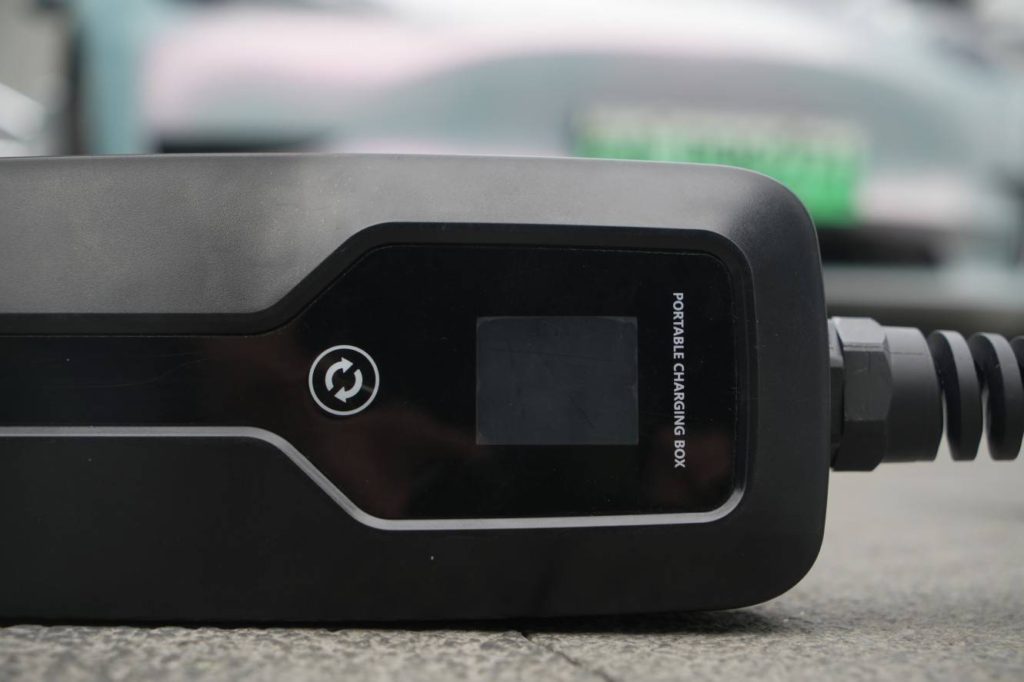
Prepare Ahead of Time and Plan Routes
Before you hit the road, it’s important to plan your route, and make sure that you have adequate charging stations along the way. EV chargers are popping up all over the place, so be proactive and search for a list of available green electricity providers ahead of time. This way, you won’t find yourself running out of juice in the middle of nowhere!
Portable EV chargers are a great way to ensure that you have backups in case you can’t find charging stations along your route. They are highly convenient and much lighter than traditional EV chargers; all the more reason to invest in one! When selecting a portable EV charger, it is important to pay attention to the output voltage and amps. This will tell you how quickly the charger will get your car back up and running. Chargers with higher volts (110V) take longer to charge but have a lower risk of overloading the electrical system. If speed is what you’re after, look for a charger with higher amps (30Amp+).
When it comes to charging your electric vehicle with a portable charger, you definitely should prepare and plan ahead. Research online for EV charging stations along the designated route and make sure that they are available on the day of travel. Additionally, you should call around or speak to locals in that area if possible as sometimes charger locations can get outdated or need maintenance. This will save you plenty of time and heartache while on your journey!
It is also essential to check earlier in the week that the charge you need is available at the place you plan on visiting. This will give you enough time to adjust your route if needed, or plan alternative arrangements. While portable chargers are a fantastic option for fresh-air trips, it can be difficult to predict precisely when and where you’ll need to charge up next, so you should come prepared with plenty of planned recharging stations just to be safe.
According to car experts, the key to using portable chargers successfully while travelling is preparation. Before leaving home, make sure you’ve packed your charger in an easily accessible place and that you know how to use it properly. Check the length of charging time and capacity of your device by checking their data sheets. When on the go, keep a full bird’s eye view of all recharging stations nearby, so you know what other charging options are available if your portable recharge doesn’t last as long as expected.




